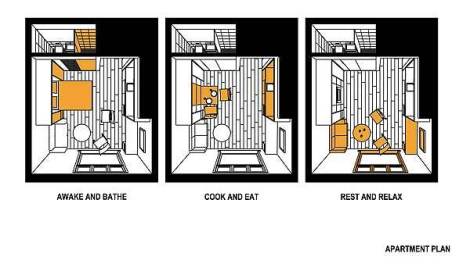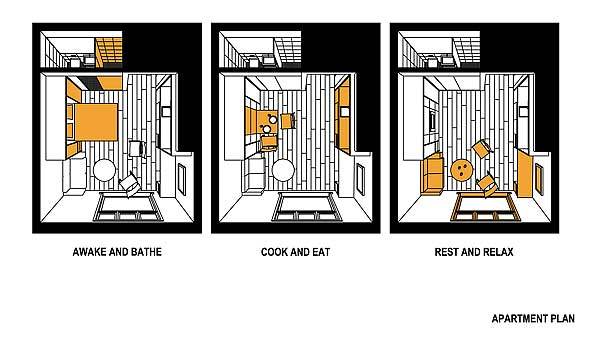Always wanted to live in an adorable Tiny House except, like, without all that nature around you? Well today is your lucky day, urban dwellers! Following the lead of Vancouver and New York, San Francisco has approved legislation that will change the city building code to allow for “micro-unit apartments” that boast only 150 square feet of living space.

San Francisco is the most expensive rental market in the U.S., in part because it’s tough to get anything built in the city. About 40 percent of San Francisco residents live solo, and those who work in tech tend to live in their offices anyway, so why not a closet for a condo?
City Supervisor Scott Wiener had pushed the legislation as an “affordable option” for S.F. residents who don’t want to pay upwards of $2,000 for the average “large” city studio. (Wiener had said previously that he expected the units to rent for $1,200 to $1,700, so it seems “affordable” is in the eye of the beholder.) “Allowing the construction of these units is one tool to alleviate the pressure that is making vacancies scarce and driving rental prices out of the reach of many who wish to live here,” Wiener said in a statement.
Bay Area developer Patrick Kennedy of Panoramic Interests believes tiny dwellings will “get huge” for a number of social, economic, and planning reasons. Cities benefit from the expanded tax base, neighborhoods benefit from the infusion of people, residents benefit from the social dynamics of density. At a time when public budgets are crunched, says Kennedy, micro-unit buildings are also “a way of civilizing an area without using city or state or federal funds.”
While sardine housing is intrinsically dense (yay), more sustainable (yay), and potentially great for the city’s young singles (also yay), it doesn’t address a lack of affordable apartments sized for families. And with a cap of 375 micro-units to start, the project is unlikely to have much effect on the rental market at all.
But in a city that is seeing far slower growth than the nation’s other urban centers, micro-units might be exactly the kind of punch needed to fuel other urban innovations.




